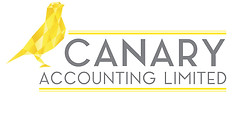"I'm employed so I don't need to worry about tax"
- Ruth Chettle

- Jun 17, 2021
- 3 min read
A lot of people I speak to that are employed tell me how "they don't need to worry about tax because their employer deals with everything for them".
Whilst this may be true for some people there will be a few instances where this might not be the case.
So I wanted to cover some of the things that might impact you so you can have a brief understanding of what to look out for.

High Income Child Benefit Charge
If you earn over £50,000 and you or your partner receives child benefit then you will need to prepare and submit a Self Assessment Tax Return to pay the High Income Child Benefit Charge.
You can find more details about the High Income Child Benefit Charge on an earlier blog I wrote here.
Earnings over £100,000
If you earn over £100,000 (before personal allowance) then you are required to prepare and submit a Self Assessment Tax Return to HMRC.
This is because for every £2 you earn over £100,000 you will lose £1 of your personal allowance.
If this is the first year you go over £100,000 then this may not be factored into your PAYE code so you will have extra tax to pay. The effective tax rate of losing your personal allowance is 60% so can result in a hefty tax bill if you're unaware of it!
The key point for these two items is that YOU are responsible for notifying HMRC about these.
Your PAYE code is wrong
Every person in the UK that is employed gets a personal tax code. This is given to employers and the amount of tax that gets deducted is based on this code.
Most people will receive a standard PAYE code based on the personal allowance for that year.
However, for some individuals they might have a different PAYE code due to the following reasons:
- Taxable benefits such as company car
- Job expenses such as uniform allowance
- Professional subscriptions
- Personal pension contributions
- Underpayment of tax from a prior tax year to be collected in this tax year
If you have these then HMRC may include estimates or last years actuals for the basis of the new year which may mean you can pay too much or too little tax which will need rectifying.
It is always worth having a look at your PAYE code at the start of the new tax year to make sure it is correct so you can contact HMRC to get it updated sooner rather than later.
TOP TIP - Have a general understanding of how your tax is calculated
I always think that just before leaving school you should be taught how your tax is calculated. It's a life skill that is very much needed.
Most employers now use payroll software where the rates are automatically updated however, as with all things there is still a chance that something is entered incorrectly.
Regardless of whether you know how your tax should be calculated its about having a general understanding and knowing when you may need to question it.
If you usually get £1,000 in your bank each month and the next month you get £800 you will probably question it as it's a big drop. But would you question it if you received £1,200? You may think brilliant but what if your tax has been calculated wrong and you need to repay it?
The person who prepares your payroll will normally be your first port of call but there are online payslip tax checkers which you can use or an accountant will be able to help you.
I hope this blog has given you something to think about. If you have any queries please feel free to get in touch.




Comments